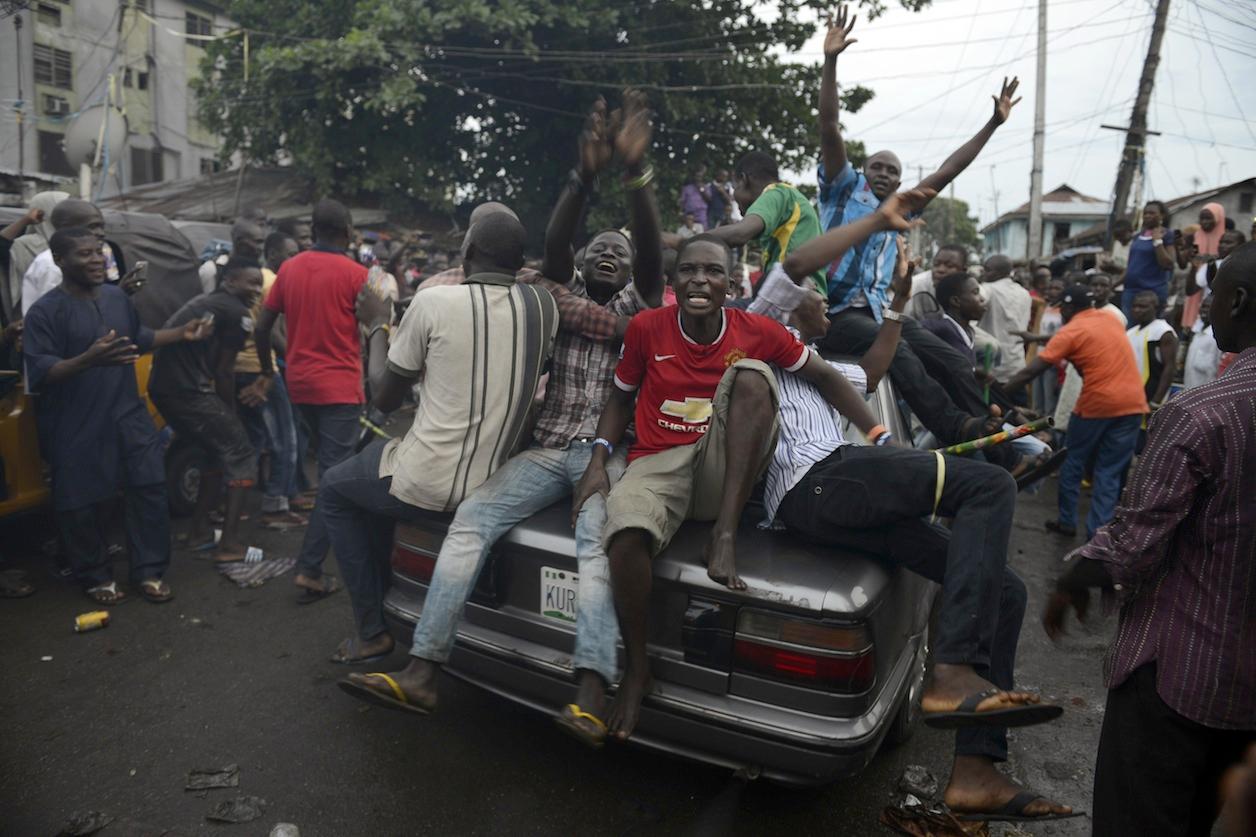Nigeria’s first opposition win since ’60 puts an ex-military coup leader back in power
JOHANNESBURG, South Africa — Nigerians weren’t happy with their president, and so they voted him out.
It seems simple, but given Nigeria’s messy political past, the results of presidential polls announced Tuesday are a major step forward for democracy in Africa’s most populous country — and an indictment of Goodluck Jonathan's five years in office.
Muhammadu Buhari, a gap-toothed former military dictator, has made history by becoming the first opposition candidate to be elected president. In other words, for the first time since Nigeria's independence from Britain in 1960, there will be a democratic transition of power to a different political party.
Jonathan is reported to have telephoned Buhari to concede defeat and offer congratulations, a move hailed as defusing tensions in a country prone to post-election violence. Though it doesn't ensure the calm will hold.
As the final ballots were counted, Buhari, the candidate for the opposition All Progressives Congress, led by some 3 million votes over Jonathan from the People’s Democratic Party, a lead seen as insurmountable.
Buhari's wife Aisha tweeted:
Observers had warned the elections could be a step backward for democratic process. There were fears from British and American diplomats of political interference during the vote counting, and broader worries of Boko Haram insurgents targeting polling stations.
An estimated 50 people were killed on election day, March 28, most of them in an attack by Boko Haram in the country's northeast.
More from GlobalPost: This graphic shows just how brutal Boko Haram really is
There were also concerns about the possibility of political violence after what was a tightly fought race between Buhari, a Muslim from northern Nigeria, and Jonathan, a Christian from the southern Niger Delta. Following the 2011 polls — in which Buhari and Jonathan also faced off — riots broke out in the country’s north and more than 800 people were killed.
But the 2015 vote went relatively smoothly, despite a few hitches along the way.
The elections were originally scheduled to be held Feb. 14. They were delayed by six weeks after Nigeria’s military said it would be unable to provide security sooner because its soldiers were busy fighting Boko Haram. They're an extremist militant group that recently claimed allegiance to the Islamic State.
The chairman of the Independent National Electoral Commission, Attahiru Jega, has won praise for shepherding the country through generally fair and free elections, which for the first time made use of biometric voting cards and hand-held electronic card readers.
Some of the country's 150,000 polling stations were beset by technical problems, as well as late delivery of election materials, leading to a second day of voting in certain areas. Jonathan himself had trouble voting due to a technical glitch.
But Nigeria's Transition Monitoring Group, which had observers stationed across Nigeria, said the impact was limited: "These issues did not systematically disadvantage any candidate or party."
The PDP has ruled Nigeria since the country's return to civilian government in 1999.
Buhari will now govern a population of 170 million and the continent's biggest economy — though one plagued by corruption, electricity shortages and an Islamist insurgency.
Having escaped an attack by Boko Haram on his convoy in July, Buhari promised to end the insurgency within months if elected president.
But there are questions surrounding his leadership. While this is the fourth democratic election he has contested, the 72-year-old ex-general ruled Nigeria for 20 months after seizing power in a military coup in December 1983.
His rule is chiefly remembered for campaigns against government waste, corruption and indiscipline — and for accompanying human rights abuses, as well as restrictions on press freedom.
Buhari has since declared himself a born-again democrat.
Every day, reporters and producers at The World are hard at work bringing you human-centered news from across the globe. But we can’t do it without you. We need your support to ensure we can continue this work for another year.
Make a gift today, and you’ll help us unlock a matching gift of $67,000!
